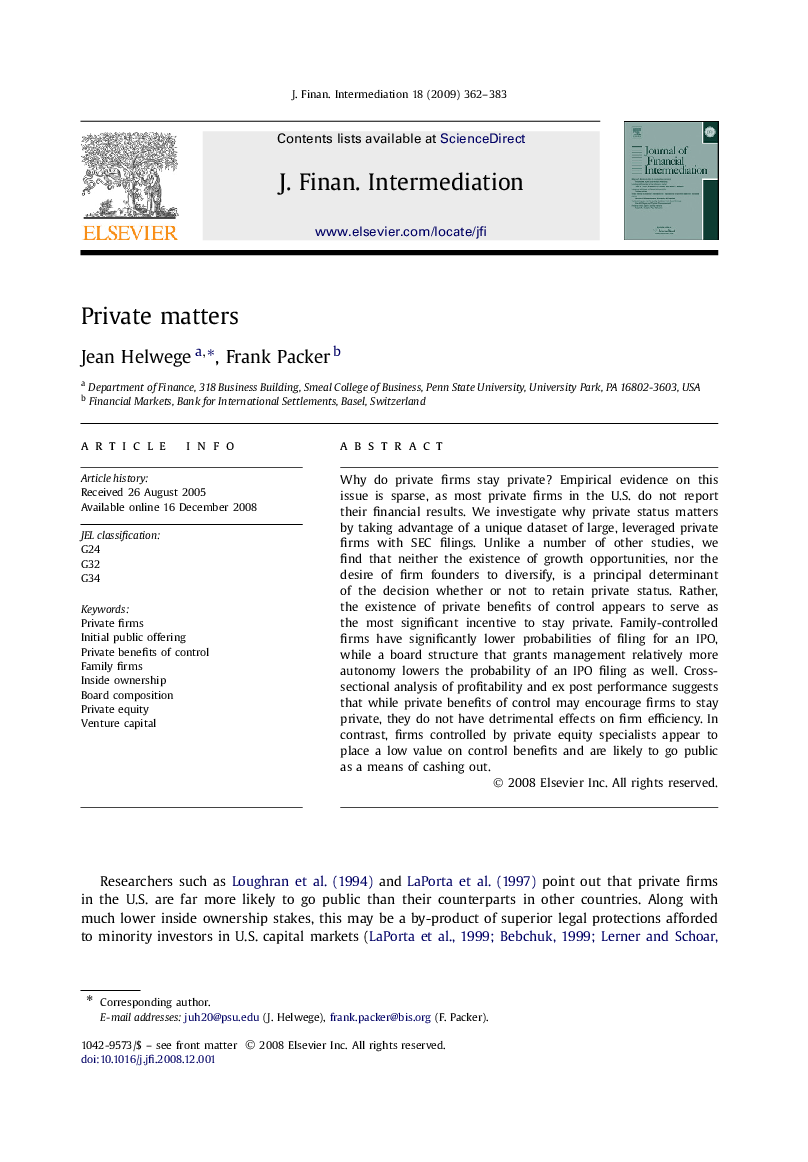| Article ID | Journal | Published Year | Pages | File Type |
|---|---|---|---|---|
| 960727 | Journal of Financial Intermediation | 2009 | 22 Pages |
Why do private firms stay private? Empirical evidence on this issue is sparse, as most private firms in the U.S. do not report their financial results. We investigate why private status matters by taking advantage of a unique dataset of large, leveraged private firms with SEC filings. Unlike a number of other studies, we find that neither the existence of growth opportunities, nor the desire of firm founders to diversify, is a principal determinant of the decision whether or not to retain private status. Rather, the existence of private benefits of control appears to serve as the most significant incentive to stay private. Family-controlled firms have significantly lower probabilities of filing for an IPO, while a board structure that grants management relatively more autonomy lowers the probability of an IPO filing as well. Cross-sectional analysis of profitability and ex post performance suggests that while private benefits of control may encourage firms to stay private, they do not have detrimental effects on firm efficiency. In contrast, firms controlled by private equity specialists appear to place a low value on control benefits and are likely to go public as a means of cashing out.
